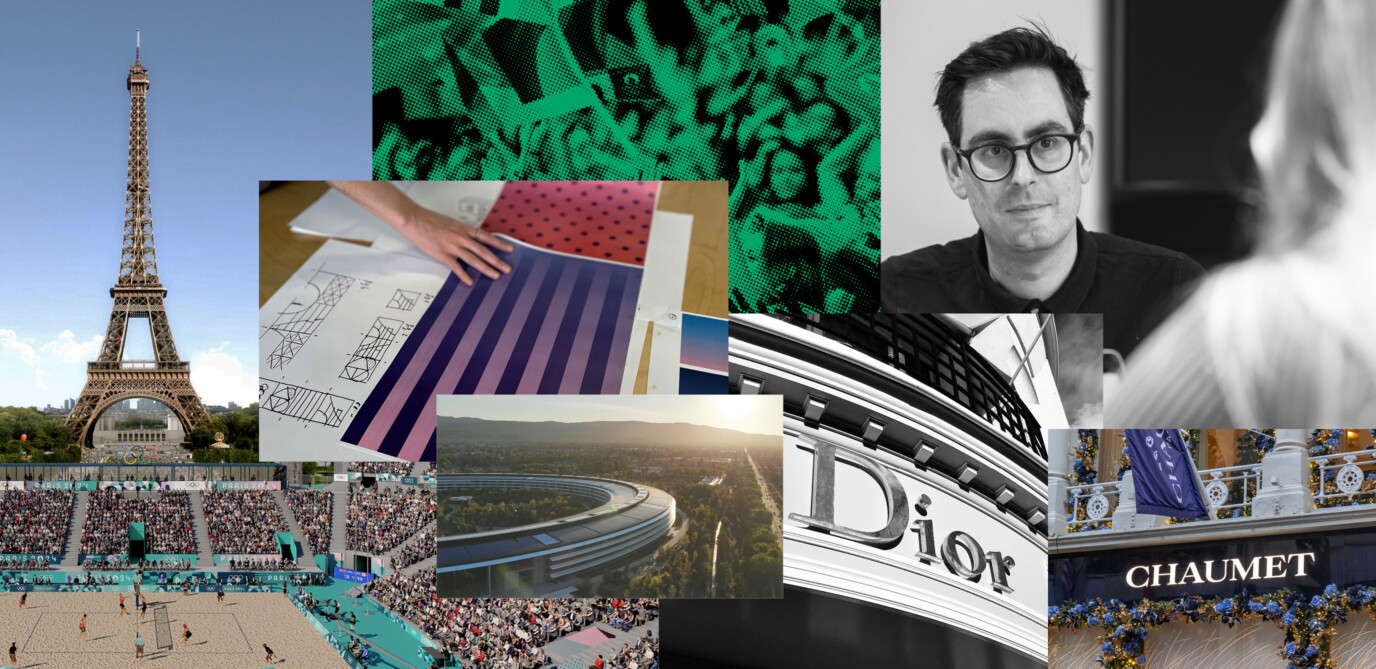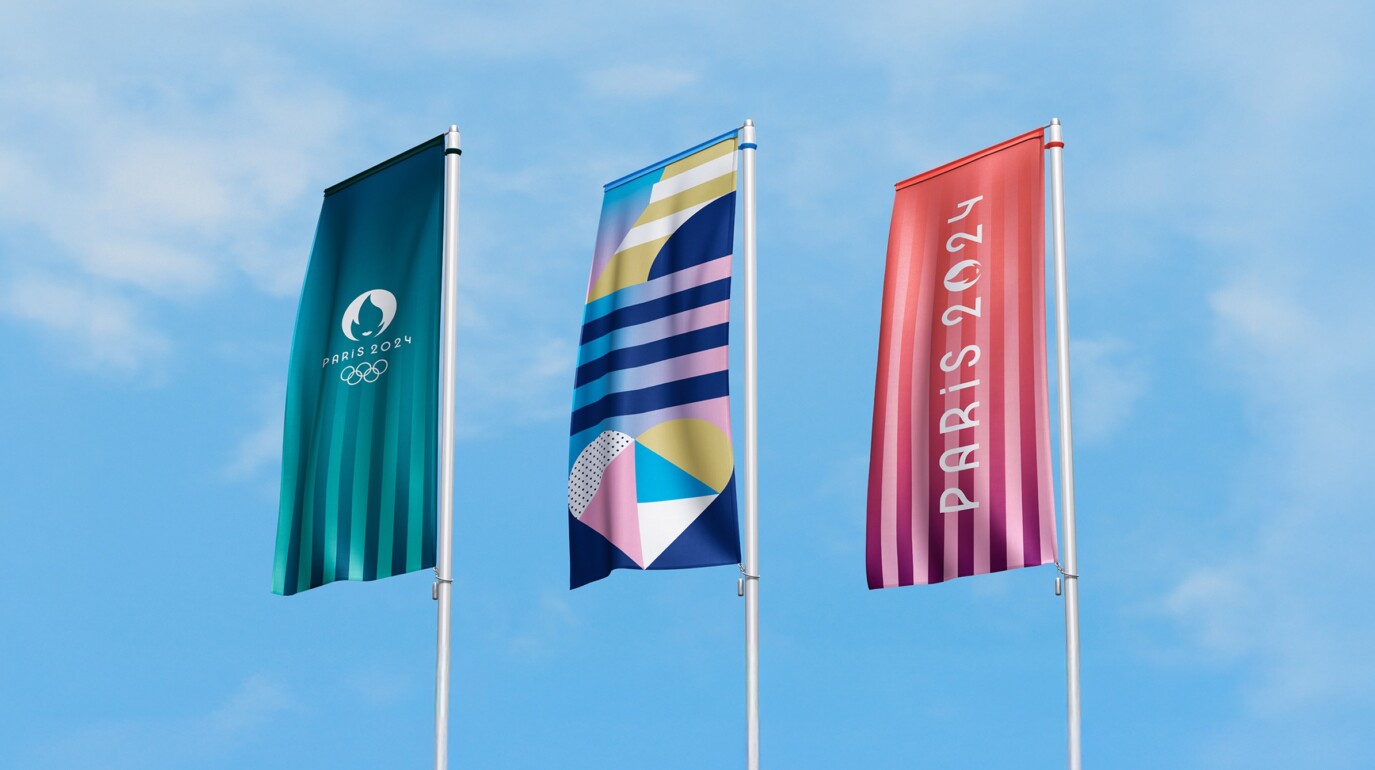
AUTHOR: TIM PARKER
READ TIME: 4 MINS
Tim Parker, Brand Strategy Director at Conran Design London, explains the dominance of luxury brands at Paris 2024 and what their activations say about the direction of luxury branding today.
“Paris is a party – and everyone’s welcome!” So said my colleague Anaïs Guillemané Mootoosamy when talking about the brand territory we created for the 2024 Games. And if Paris was a party, the luxury sector certainly booked itself a VIP pass.
Luxury brands marked their presence everywhere, from Dior dressing Lady Gaga at the opening ceremony to jewellery house Chaumet designing the medals. LVMH’s involvement as a premium partner wasn’t just about securing prime ad spots; it was about showcasing creativity, craftsmanship and artisanal heritage at the Games’ most memorable celebratory moments.
Why Paris was the place to be for luxury
So why was there a proliferation of luxury brands at Paris 2024? Why, with the sector’s long-held codes of exclusivity, was there such a focus on mass-market sponsorship? And what does that tell us about the shifting ambitions of luxury brands today – particularly with reaching new audiences?
The first part of the answer is simple: with Paris being the luxury and fashion epicentre of the world, luxury’s involvement felt entirely natural. A greater shock, perhaps, would have been an absence of luxury names on the sponsor roster.
Second: brand exposure. With record viewing numbers and stronger-than-predicted ticket sales, Paris 2024 became a cultural moment, attracting savvy brands – particularly those with a French heritage and global ambitions.
Third: audience. Luxury brands are under pressure to diversify. As the Wall Street Journal noted recently: “If luxury brands continue to sideline middle-class shoppers, more reasonably priced labels will step in.”
It’s younger audiences that luxury brands need to win over too. Paris 2024 afforded the perfect opportunity to tap into youth culture, with the International Olympic Committee (IOC) recently introducing sports that appeal to a wider youth audience, including skateboarding and surfing. At Paris 2024, brands with one eye on the millennial and Gen Z crowd had a relatively captive audience. Added to this, the values of the Olympics align naturally with those of luxury brands. The Games blend elite athleticism with creativity, exclusivity, prestige and swagger – values that also define many luxury brands. By aligning themselves with sporting excellence and global unity, these brands weren’t just enhancing their visibility but redefining the way luxury is perceived.
“The Games blend elite athleticism with creativity, exclusivity, prestige and swagger – values that also define many luxury brands.”
And finally, there’s the fact that openness and inclusivity were mainstays of Paris 2024, the first gender-balanced Games in history and its slogan (‘Games Wide Open’) inviting everyone to take part in the action. This allowed luxury brands to align with values that feel culturally relevant and resonant, particularly to a youth audience.
Lessons for brands looking to LA28
Luxury brand activations at Paris 2024 provide some serious inspiration for those looking to leverage the power of mega-events. While Paris attracted luxury sponsorship because of Paris’ fashion heritage, we shouldn’t forget that this was the event that made the Olympics ‘cool again’ moving from the clinical Covid Tokyo Games to a global celebration of unity. LA28 (and the brands associated with it) will be looking to build on this.
So what can we learn from the activations themselves? Despite being dubbed ‘the most stylish Games to date’, some of the most successful were those that tapped into subcultures and doubled down on the brand experience. Rosewood’s Hôtel de Crillon partnered with The Skateroom, an art, skate and social change platform, for a commemorative exhibition in the capital. Dior’s Spa Cruise, set on the Seine aboard the Excellence Yacht de Paris, offered beauty and wellness treatments alongside Pilates and yoga classes. In part, this was about promoting Dior’s move into wellness, but it also helped drive differentiation. Some 300 miles from Paris, Selfridges launched Sportopia, a festival of sports featuring a 10m climbing column. With climbing growing in popularity, this was a smart move by the department store to lodge itself in the hearts and minds of younger audiences.
“Luxury brand activations at Paris 2024 provide some serious inspiration for those looking to leverage the power of mega-events.”
And finally, the Olympic opening ceremony itself managed to balance fun and frivolity with theatrics and provocation, appealing again to that broader youth audience. Unsurprisingly, fashion took centre stage: Lady Gaga, French singer Juliette Armanet and Celine Dion all wore Dior, while Paris Opera’s Guillaume Diop danced in Louis Vuitton on the Hôtel de Ville rooftop.
A word of warning: the worlds of luxury fashion and sport may have converged over the last decade – but brands need to tread carefully. Many Olympic sports are lifestyles and cultures with loyal followings, so when brands get involved in a light-touch way, audiences can sense shallow motives. For brands to win big, every activation must feel creatively distinctive and must tie into the narratives and ambitions of both the brand and the sport.
Those eyeing LA will need to carefully consider these narratives. As a city synonymous with entertainment – and California more widely with tech innovation – the question for potential sponsors will be one of authenticity. How do luxury brands show up in a way that aligns with the wider geographic and cultural setting? How do they work in and around the shifting US fashion landscape? And how do they authentically partner with celebrity brand ambassadors when celebrities will be 10-to-the-dozen?
If LA28 is to be an Olympic blockbuster, luxury brands will have to think hard about how they strike the right balance.
This article first appeared in Luxury Briefing.



